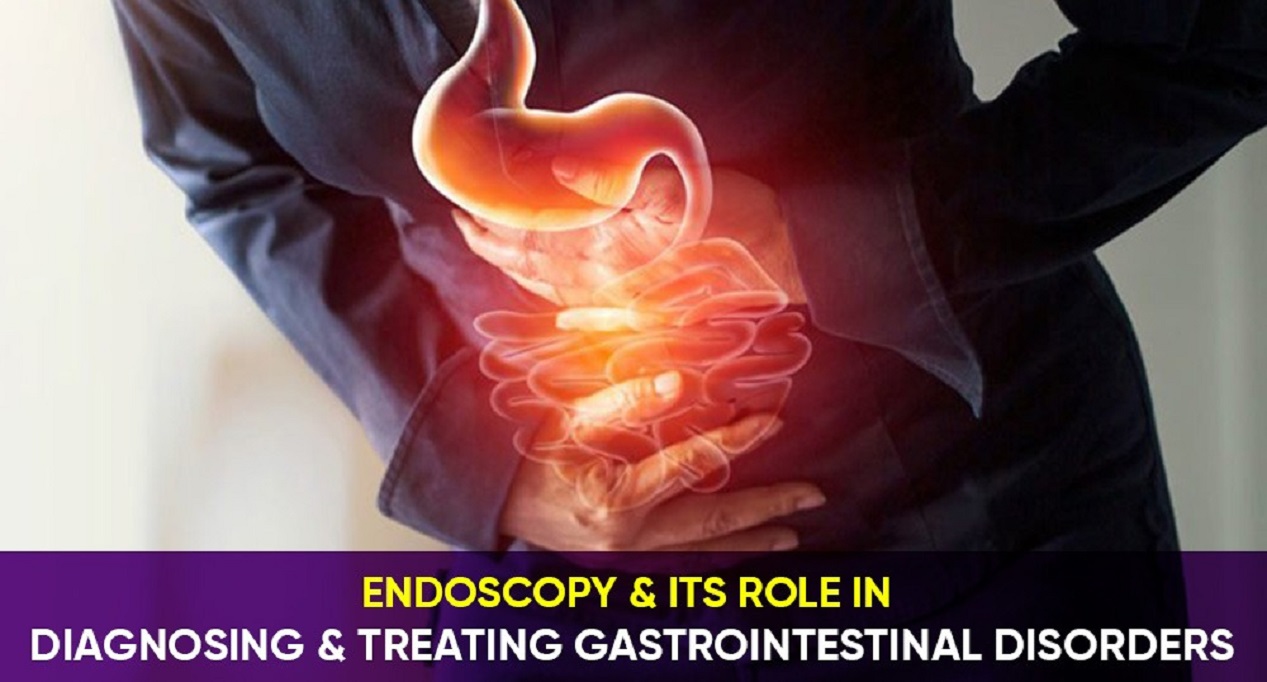Endoscopy and its role in diagnosing and treating Gastrointestinal Disorders

Endoscopy is a vital tool used by gastroenterologists to diagnose and treat various gastrointestinal disorders. It is a minimally invasive procedure that allows doctors to examine the inside of the digestive tract with a thin, flexible tube equipped with a camera and light source.
Endoscopy is useful in identifying the causes of symptoms such as abdominal pain, bloating, constipation, diarrhea, and rectal bleeding. It is also used to evaluate the severity of digestive disorders such as gastroesophageal reflux disease (GERD), Crohn’s disease, and ulcerative colitis.
At GastroPune, we offer a range of endoscopy procedures that can help diagnose and treat gastrointestinal disorders. Here are some of the most common endoscopy procedures used in gastroenterology:
- Upper endoscopy: This procedure involves inserting an endoscope through the mouth to examine the esophagus, stomach, and upper small intestine. Upper endoscopy is used to diagnose conditions such as GERD, peptic ulcers, and Barrett’s esophagus.
- Colonoscopy: This procedure involves inserting an endoscope through the rectum to examine the colon and rectum. Colonoscopy is used to detect polyps, which can become cancerous over time, as well as diagnose conditions such as inflammatory bowel disease (IBD) and colon cancer.
- Endoscopic ultrasound (EUS): This procedure involves inserting an endoscope with an ultrasound probe on the end through the mouth or anus. EUS can help diagnose conditions such as pancreatic cancer and gallbladder disease.
- Endoscopic retrograde cholangiopancreatography (ERCP): This procedure involves inserting an endoscope through the mouth to examine the bile ducts and pancreas. ERCP is used to diagnose and treat conditions such as gallstones, pancreatic cancer, and bile duct obstruction.
- Endoscopic mucosal resection (EMR): This procedure involves removing abnormal tissue from the digestive tract. EMR can be used to remove early-stage cancerous or pre-cancerous lesions from the esophagus, stomach, or colon.
In addition to diagnosing gastrointestinal disorders, endoscopy can also be used to treat certain conditions. For example, during a colonoscopy, a doctor can remove polyps, which can help prevent colon cancer. Endoscopic dilation can also be used to widen a narrowed area of the digestive tract, such as the esophagus or bile duct.
While endoscopy is a safe procedure, there are some risks involved, such as bleeding, infection, and perforation of the digestive tract. However, these risks are rare, and the benefits of the procedure often outweigh the risks.
If you are scheduled for an endoscopy procedure, it is important to follow your doctor’s instructions carefully, including any dietary restrictions and medication changes.
In conclusion, endoscopy plays a crucial role in diagnosing and treating gastrointestinal disorders. With advances in technology and techniques, endoscopy procedures have become safer and more effective than ever before. If you are experiencing symptoms of a gastrointestinal disorder, contact GastroPune to schedule an evaluation with one of our experienced gastroenterologists.
Gallstone Overview
Gallstone Overview Gallstones are small, hard deposits that form in your gallbladder. They’re made up of cholesterol, bile pigments, and calcium, and they can range in size from a grain of sand to a golf ball. Most people with gallstones don’t have any symptoms. But...
Why Do You Require To A Liver Transplant?
Why Do You Require To A Liver Transplant? A liver transplant is a surgical procedure in which a damaged or diseased liver is replaced with a healthy liver from a deceased or living donor. The liver is a vital organ that performs several important functions in the...
How Does Alcohol Damage The Liver?
How Does Alcohol Damage The Liver? Alcohol is a toxic substance that can cause damage to many organs in the body, including the liver. The liver is responsible for filtering toxins and metabolizing drugs, including alcohol, so it bears the brunt of the damage caused...
We're Here Whenever You Need Us
Phone
Open Hours
Morn: 8:30 AM - 09:30 AM (Baner)
Noon: 03 AM - 04:30 PM (PCMC) Even: 6:30 PM - 08:30 PM (Baner)
Baner Address
Sriram Yashadha Building Office No. 2 First Floor, Balewadi Phata Main Baner Road Baner, Pune, Maharashtra 411045
PCMC Address
215, Gera imperium oasis, near Finolex Chauk, Colony, Pimpri-Chinchwad, Maharashtra 411018
Quick Links
Treatment
Make Appointment
About
Services
Contact



